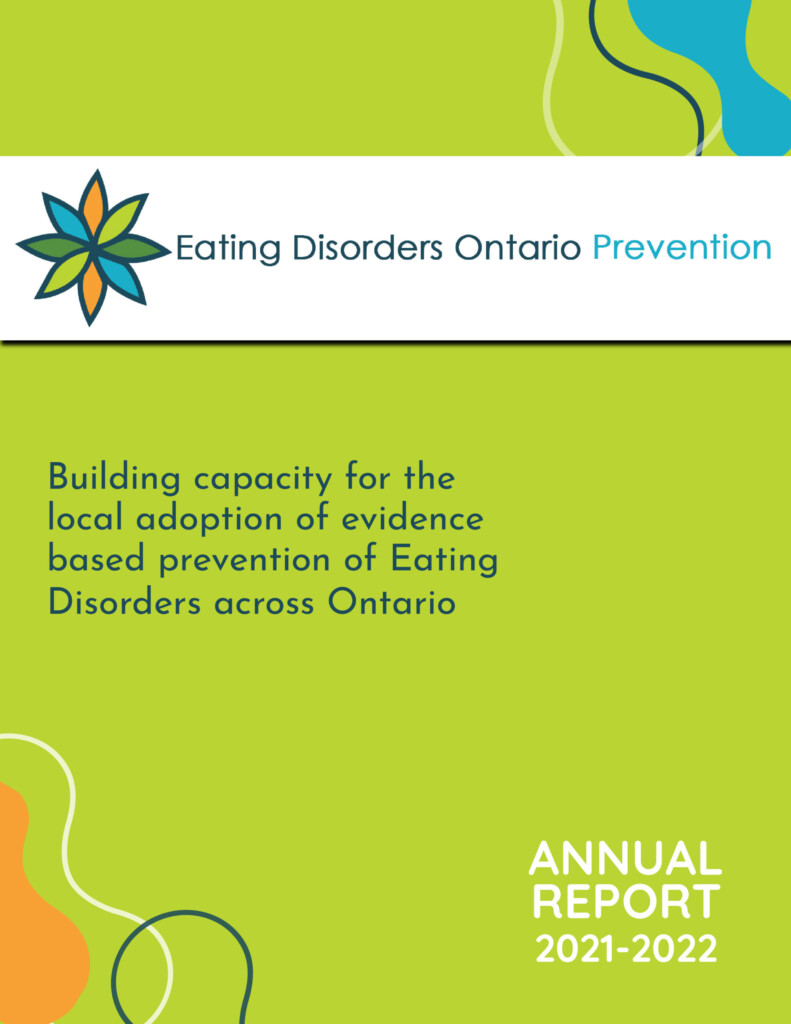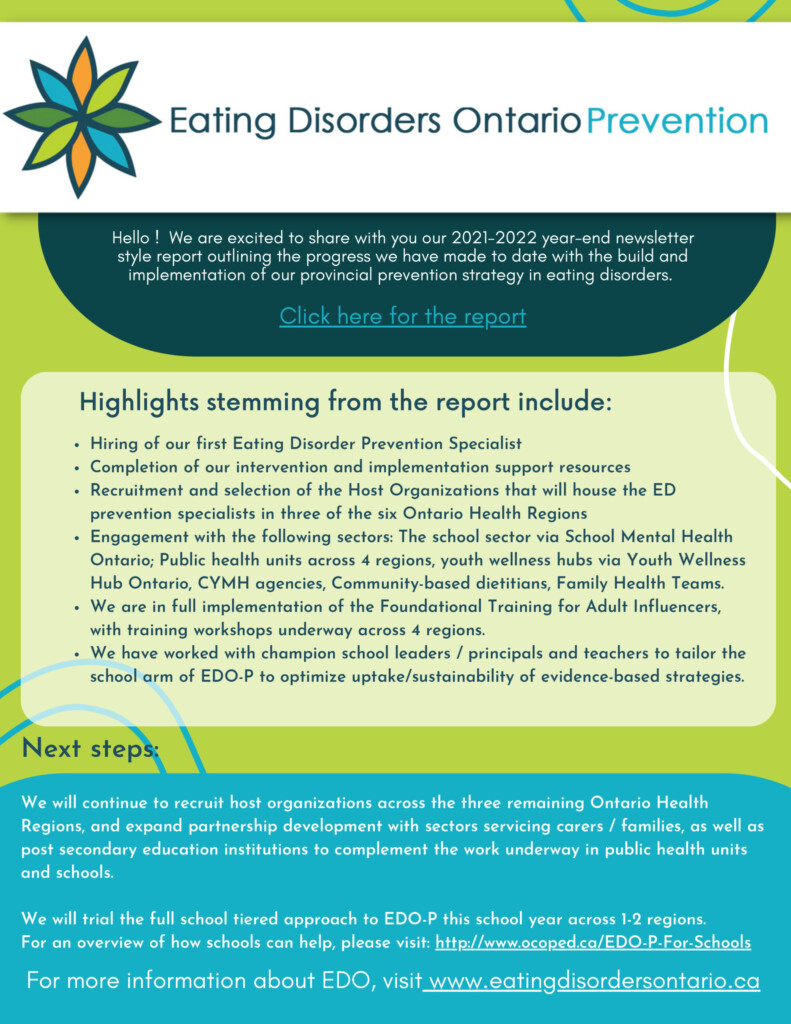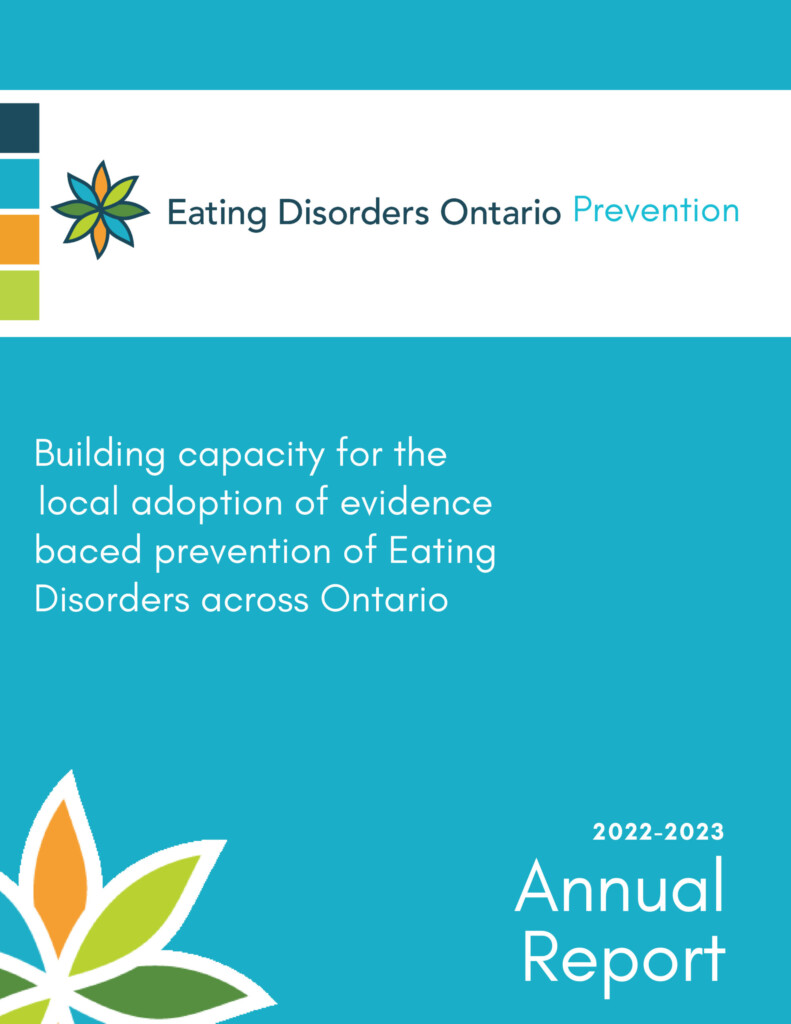Eating Disorder Ontario – Prevention


In 2021, approximately 46% of Ontario youth in grades 7-12 reported preoccupation with weight or body image (OSDUHS, 2022). In addition, 40% of youth reported experiencing weight and shape based bullying, which the most common focus of bullying. Both of these factors are known risk factor for disordered eating and development of an eating disorder. Canada-wide, up to 30% of youth report disordered eating symptoms (Ie. food restriction, binge eating and other weight or shape control methods). Disordered eating places youth at risk for eating disorders. Of note, there was a significant increase in the number of children and youth seeking help for an eating disorder in Ontario throughout the pandemic (Couturier et al., 2021; Spettigue et al, 2021, Katzman, 2021).
Funded by Ontario Health, Eating Disorders Ontario – Prevention (EDO-P) will provide evidence-informed, implementation-sensitive and identify affirming strategies and interventions to help reduce disordered eating. This is done through a whole community approach that aims to:
- Support all adults to incorporate promotion and prevention in their daily lives and work in the community
- Build local capacity for the delivery of eating disorder prevention interventions
- Develop and maintain collaborative partnerships with community and provincial stakeholders
Engagement and alignment at the provincial systems level and at the local community level is ongoing to ensure “fit” with on the ground health promotion and prevention work led by stakeholders across multiple sectors.
EDO-P is supported by long standing co-development, research and collaborative partnerships carried out with stakeholders from multiple sectors including public health, schools, post-secondary, sports stemming from a 20-year program of longitudinal intervention research (see The Ontario Project; Levine & McVey, 2015; McVey & Antonini, 2016). The EDO-P strategy is further backed up by intervention research led by additional internationally-recognized prevention scholars (Becker & Stice, 2017; Conrod, 2016; Diedrichs, 2021; Levine & Smolak, 2021).
EDO-Prevention is led by Eating Disorders Ontario at UHN, in partnership with regional lead organizations like BANA and clinical advisors across the province that, collectively, have key expertise in eating disorder treatment, prevention, health promotion, research, community development and partnership development.
EDO-P at BANA
In Ontario Health West, EDO-P is hosted by BANA, who employs a team of Prevention Specialists located across the region in the communities which they support. Each Prevention Specialist has a dedicated sub-region where they will role out EDO-P strategies and interventions in direct partnership with local agencies and settings while providing ongoing implementation support and education.










